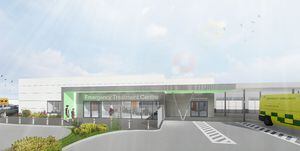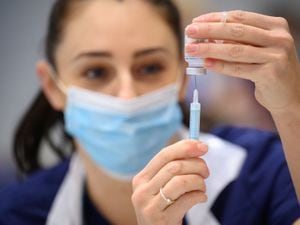Mineshaft to delay opening of Russells Hall treatment centre
The opening of a £2.6 million emergency treatment centre at Russells Hall Hospital will be delayed due to problems over a mineshaft.

The new centre, which is designed to take pressure off A&E, could open up to six weeks later than planned as it was revealed a capped mineshaft at the site must be registered with the National Coal Board.
The facility was expected to open at the start of November to coincide with the busy winter period but health chiefs could be waiting until just before Christmas before it is finally up and running.
The discovery of the issue with the mineshaft has thrown a spanner into the works and delayed the opening date of the much-needed centre, possibly until December 11.
The setback was revealed in a report to board members of the Dudley Group NHS Trust, which runs Russells Hall.
It said: "We have been notified that the Dudley Emergency Treatment Centre is likely to be delayed up to a maximum of five weeks.
"The trust's estates team are meeting with the contractors to ascertain if this delay can be reduced.
"The original opening date was to be the November 1, 2017. The best case scenario for the revised timescale therefore is that we can open on November 20, worst case scenario December 11, 2017.
"The reason for the delay is the designation of a capped mineshaft that has to be registered with the National Coal Board prior to the footings of the new build being commenced."
The emergency treatment centre will compliment Russells Hall's A&E and it is hoped it will help staff to cope with the number of patients coming into the hospital.
It was revealed yesterday that Russells Hall is set to miss out on £250,000 of funding from the Government for not hitting NHS waiting time targets.
Just 82 per cent were seen on time in July, way below the national target of 95 per cent.
Work started on the purpose-built centre in August, which will be next door to the A&E department.
Health chiefs have said it will give patients ‘an improved single point of access and one-stop shop for urgent and emergency treatment’.
Having the two services together also means patients won’t have as far to go for non-emergency care and staff will be able to work closer together.





